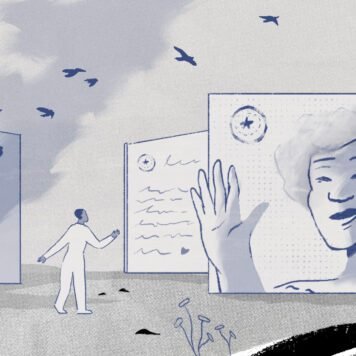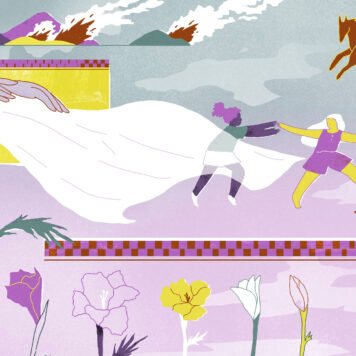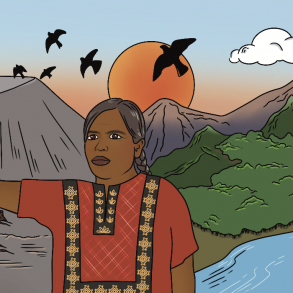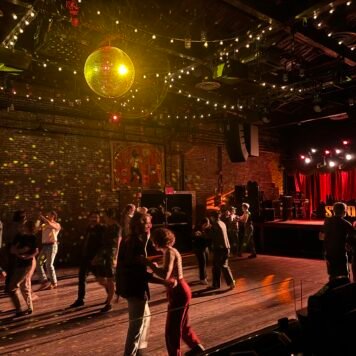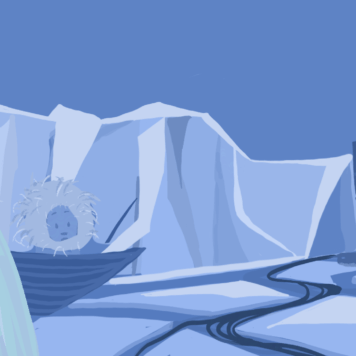When I first hop on a Zoom call with adrienne maree brown – late afternoon their time, late night mine – I am brimming with energy. I’ve just finished reading their second book, Pleasure Activism: The Politics of Feeling Good, and I’m set for a lively, animated discussion about eroticism, sexuality, gendered oppression and class discrimination. But adrienne’s presence is so tranquil and calming, even over Zoom, that I’m immediately swept away by their softness. I’m struck by the realisation that most of the discussions I’ve had in the activism space have been loud, and often angry (rightfully so), while adrienne’s activism is focused on doing what is best for them, their relationships and their spirit.

adrienne maree brown is one of the world’s leading Black feminist scholars and theorists whose work is heavily inspired by Audre Lorde and the fiction writing of Octavia Butler. Their first book, Emergent Strategy: Shaping Change, Changing Worlds attempts to reckon with the fact that the world – and therefore activism – is in a constant state of flux, and only by understanding that can we organise effectively and efficiently. Pleasure Activism, on the other hand, encourages us to turn inwards and look at ourselves as small parts of a whole. It removes us from a mindset of fragmented individualism, thinking instead about a mutually beneficial community that we can all draw from and contribute to. But the theory is that we can only do this by centring pleasure, in whichever form that is natural to us.
For BIPOC, people of marginalised genders and sexualities, people with disabilities and low-income workers, putting your pleasure front-and-centre is activism in and of itself. We exist in a world that systemically denies us the opportunity to feel good about who we are and what we do. And often, by centring our pain, anger and frustration in activism, we end up depriving ourselves of simple pleasures too. Instead, adrienne suggests, let’s see pleasure as political and exercise it as activism– whether that’s breaking the bed when lovemaking or painting the fence of your front garden. adrienne reminds us that: “once we feel that pleasure, we can’t settle for self-negation and despair anymore.”.
And nowhere has that been clearer than in the past year, between the pandemic, visible impacts of the climate crisis on marginalised communities, and the violence that has been unleashed on the bodies of racialised people. With everything so stripped back and raw, we couldn’t go about our lives on autopilot anymore, and we were forced to reckon with how to find pleasure in the small things. “It became a container to practice finding pleasure,” adrienne says, “We could finally focus on the abundance of the present.”
That’s not usually how we frame the pandemic, social distancing and quarantine orders. And of course, there isn’t much satisfaction in staring at four walls and witnessing mass destruction. But, as adrienne points out, we can’t centre pleasure if we look for satisfaction from external forces that are out of our control. “Of course we can’t be satisfied in the way we’re socialised at the moment,” they say. “We’ve had centuries of training that tell us that we’re not full human beings.” Looking for satisfaction is markedly different from opening yourself up to different sources of satisfaction, and for adrienne, that’s the difference: “I went from asking myself if I was satisfied, to if I was satisfiable. That flipped my whole life on its head, including how I looked at social justice movements. In order to be satisfied, I’d have to communicate, be vulnerable, be connected and be intimate.”
adrienne’s words remind me of the breakdown of local democracy and the disengagement with politics across most of the world. If we’re not given the opportunity to communicate our needs, how can we expect to have them met? The new bill in the UK – which proposes increased and heavier policing of protest activity – is the perfect example of those in power keeping hold of what they believe satisfies people. And, by proxy, their definition of satisfaction is increasingly through a white, male, middle-class lens.
Protest is so central to how we drive change, and occurs in thousands of ways: outside and inside, quietly and loudly, together or alone. But, more and more, protest isn’t a safe space. Black and brown bodies are more likely to get shot at, injured, and killed at protest than white bodies are. That’s when being in a body, as well as taking proper care of it, becomes political too. We perceive pleasure and pain through the many interconnected systems in our bodies, and in that way, we’re each a microcosm of the planet we inhabit, that is equally as complex and interdependent. “We are small pieces of the planet, and how we treat ourselves directly affects how we treat the planet. Prioritising myself also means prioritising a species.” Suddenly, adrienne’s softness and calming presence starts to make sense. If we’re not soft and caring with ourselves and the people around us, how can we expect to create a world that has slowed down enough to curb the impacts of the climate crisis and capitalism?
It’s often an under-discussed part of the climate crisis, and one that is championed by Indigenous cultures around the world. Resolving the climate crisis requires us to see ourselves as part of a whole, rather than individuals competing for finite resources. In order to do that, we need to start by centring an ideology of community care, sharing and helping those who are at a disadvantage first. And those are the sorts of complicated cultural changes that the multibillion self-care industry can’t resolve. “Mainstreaming care, including face masks and bath soaks and other things you can do to soothe your body, is great. All of those things should be readily available to everyone,” adrienne says. “But when it becomes about how quickly sales of those things can grow, we sideline the growth of spiritual, ancestral and intergenerational growth. We’re now burning so much sage that Indigenous people can’t access it for their rituals.”
Trying to overhaul an extractive system means recognising the ways that we benefit from it, and are exploited by it. One way we can do that is by pulling our collective vision of the future into the present. If we start living by the principles that we want to see in our future now – whether that is community care, less exploitative work practices, or a better relationship to the land – we can hold ourselves more accountable. “Let’s also celebrate when someone is accountable,” adrienne says. “Let’s celebrate someone admitting to mistakes, someone recognising that their attention was divided, and just living concurrent lives alongside each other.”

See more of Luci’s work on instagram


